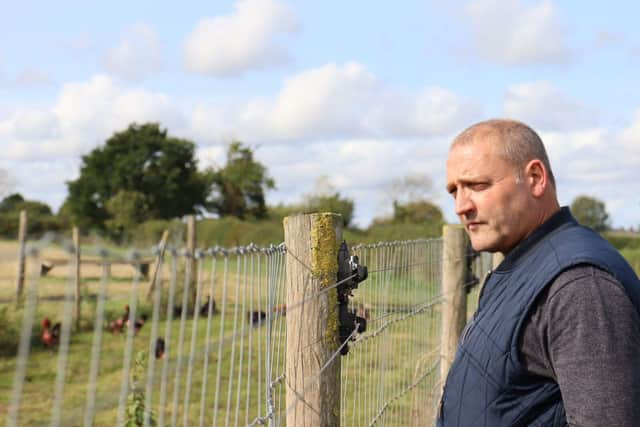Scottish Farmers Increasingly Concerned By Continued Flood Risks
and live on Freeview channel 276
Flooding across farmland can kill livestock but, so can what’s in the water. Poultry owners should be concerned about flooding not just because of the water rise itself but because the floods bring with them the increased threat of disease. International studies have shown an increased risk of Salmonella in livestock after flooding events, and as standing water is one of the biggest reservoirs for disease it is easy to see how, with a flooded water table and overworked drainage, domestic poultry will have ample opportunity to drink from contaminated water.
Whilst insurers are still trying to establish the full cost to homes and businesses of these events, the cost to the nation’s already hard-pressed farms is sure to run into the many millions.
A united response from industry
Advertisement
Hide AdAdvertisement
Hide Ad

The issue is one of great concern for farmer’s representatives, with the NFU Scotland’s President, Martin Kennedy, noting that, “The level of flooding seen in some parts of Scotland was exceptional,” and that, “it is the farming industry that is left carrying the can.”
There are further demands that the UK government strengthen its commitment to UK food security with firm action on water management. And fears of how this impacts farmers are shared across many industry groups, as they echo these concerns.
Regional Director of the Country Land and Business Association, Tim Bamford said: “Flooding can have a massive impact on farming and the countryside, with crops damaged and rural communities often cut off.
“Farmers want to provide solutions to the climate crisis. But until the Government steps in to tackle planning delays and offer full and proper compensation to those storing floodwater, farmers will continue paying the price for problems they didn’t create.”
Advertisement
Hide AdAdvertisement
Hide AdA spokesperson for the Department for Environment, Food and Rural Affairs (Defra) stated: "We’re conscious of the impact Storm Babet and Ciaran will have had on the farming community, and the important role to play in reducing the risk of flooding and coastal erosion as we adapt to climate change."
Planning against disease risks in the wake of flooding
Julian Sparrey, Livetec’s Technical Director, said that in preparing for heavy rainfall: “Any pool of water has the potential to carry viruses. Building maintenance is paramount. It's crucial to ensure that your structure is truly watertight, particularly in the vicinity of roof fans, as water infiltration can occur there, and ensuring that water cannot gain access through the walls and under cracks in doors.
One way to check your vulnerabilities to flooding is looking at areas where water pools, looking for moss on concrete and on the sides of sheds and ensuring you have measures in place to prevent flooding in these areas.”
Biosecurity processes must also be followed too, according to Sparrey: “It is also critical to ensure that anyone entering sheds changes wet boots before entering a shed to prevent the introduction of rainwater. Taking extra biosecurity measures where there is a risk of flooding will be critical to preventing disease ingress through water."
Advertisement
Hide AdAdvertisement
Hide AdIn Scotland it’s imperative that we all remain alert to the threat of flooding both nationally and locally. Farmers must also be aware of the diseases that can be carried in the flood water and that it can have a devastating impact, long after the floods have receded. With the risk of flooding increasing the best way to protect yourself is to plan ahead and be prepared.